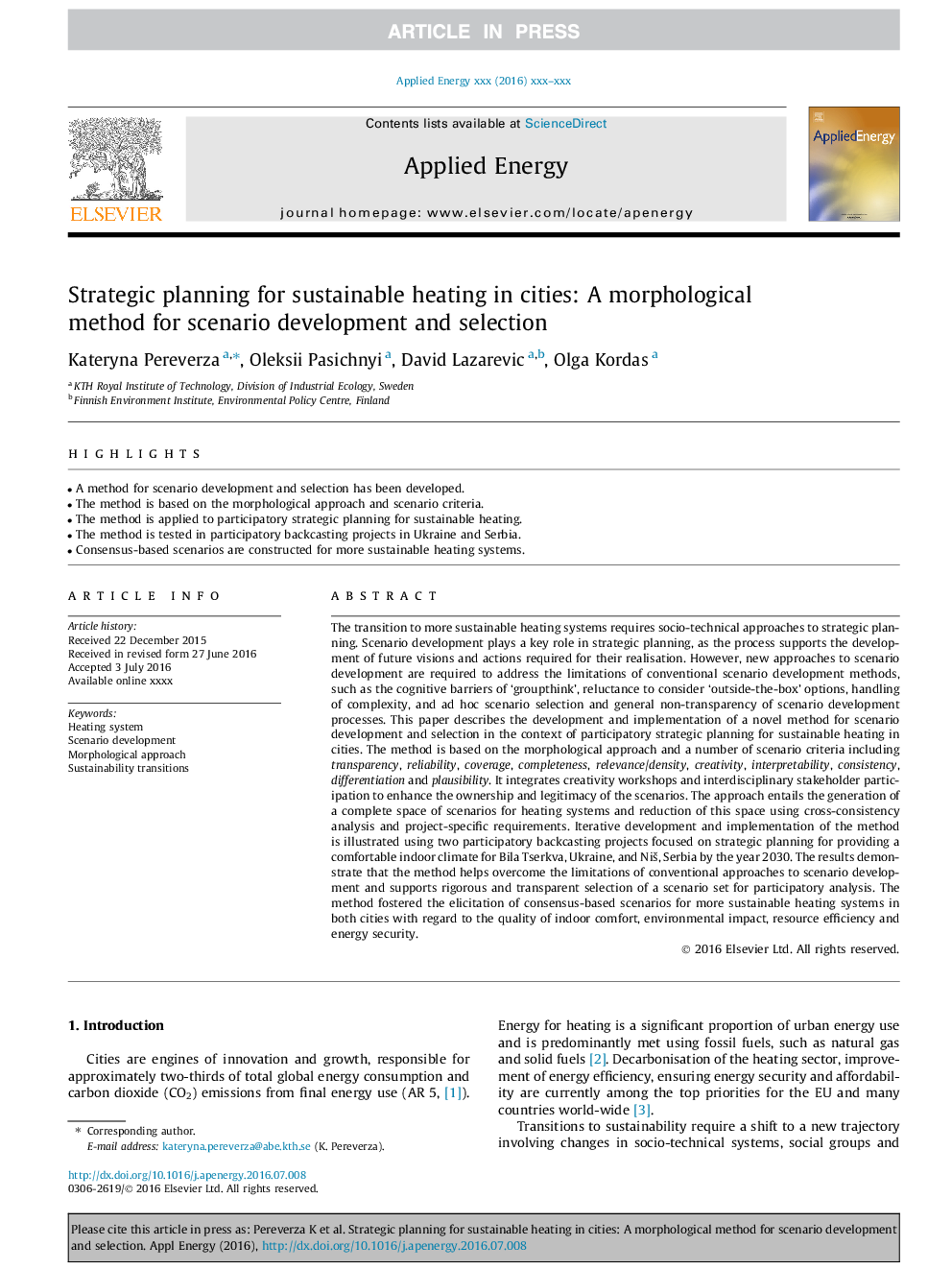| کد مقاله | کد نشریه | سال انتشار | مقاله انگلیسی | نسخه تمام متن |
|---|---|---|---|---|
| 4916828 | 1362736 | 2017 | 11 صفحه PDF | دانلود رایگان |
عنوان انگلیسی مقاله ISI
Strategic planning for sustainable heating in cities: A morphological method for scenario development and selection
ترجمه فارسی عنوان
برنامه ریزی استراتژیک برای گرم شدن پایدار در شهرها: یک روش مورفولوژیکی برای توسعه و انتخاب سناریو
دانلود مقاله + سفارش ترجمه
دانلود مقاله ISI انگلیسی
رایگان برای ایرانیان
کلمات کلیدی
سیستم گرمایش، توسعه سناریو، رویکرد مورفولوژیکی، انتقال پایدار،
موضوعات مرتبط
مهندسی و علوم پایه
مهندسی انرژی
مهندسی انرژی و فناوری های برق
چکیده انگلیسی
The transition to more sustainable heating systems requires socio-technical approaches to strategic planning. Scenario development plays a key role in strategic planning, as the process supports the development of future visions and actions required for their realisation. However, new approaches to scenario development are required to address the limitations of conventional scenario development methods, such as the cognitive barriers of 'groupthink', reluctance to consider 'outside-the-box' options, handling of complexity, and ad hoc scenario selection and general non-transparency of scenario development processes. This paper describes the development and implementation of a novel method for scenario development and selection in the context of participatory strategic planning for sustainable heating in cities. The method is based on the morphological approach and a number of scenario criteria including transparency, reliability, coverage, completeness, relevance/density, creativity, interpretability, consistency, differentiation and plausibility. It integrates creativity workshops and interdisciplinary stakeholder participation to enhance the ownership and legitimacy of the scenarios. The approach entails the generation of a complete space of scenarios for heating systems and reduction of this space using cross-consistency analysis and project-specific requirements. Iterative development and implementation of the method is illustrated using two participatory backcasting projects focused on strategic planning for providing a comfortable indoor climate for Bila Tserkva, Ukraine, and Niš, Serbia by the year 2030. The results demonstrate that the method helps overcome the limitations of conventional approaches to scenario development and supports rigorous and transparent selection of a scenario set for participatory analysis. The method fostered the elicitation of consensus-based scenarios for more sustainable heating systems in both cities with regard to the quality of indoor comfort, environmental impact, resource efficiency and energy security.
ناشر
Database: Elsevier - ScienceDirect (ساینس دایرکت)
Journal: Applied Energy - Volume 186, Part 2, 15 January 2017, Pages 115-125
Journal: Applied Energy - Volume 186, Part 2, 15 January 2017, Pages 115-125
نویسندگان
Kateryna Pereverza, Oleksii Pasichnyi, David Lazarevic, Olga Kordas,
